Prince Harry’s ‘diagnosis’ during online therapy session with Dr Gabor Maté
Prince Harry has held an online “trauma” therapy session where his therapist made a bizarre medical diagnosis of the Duke.
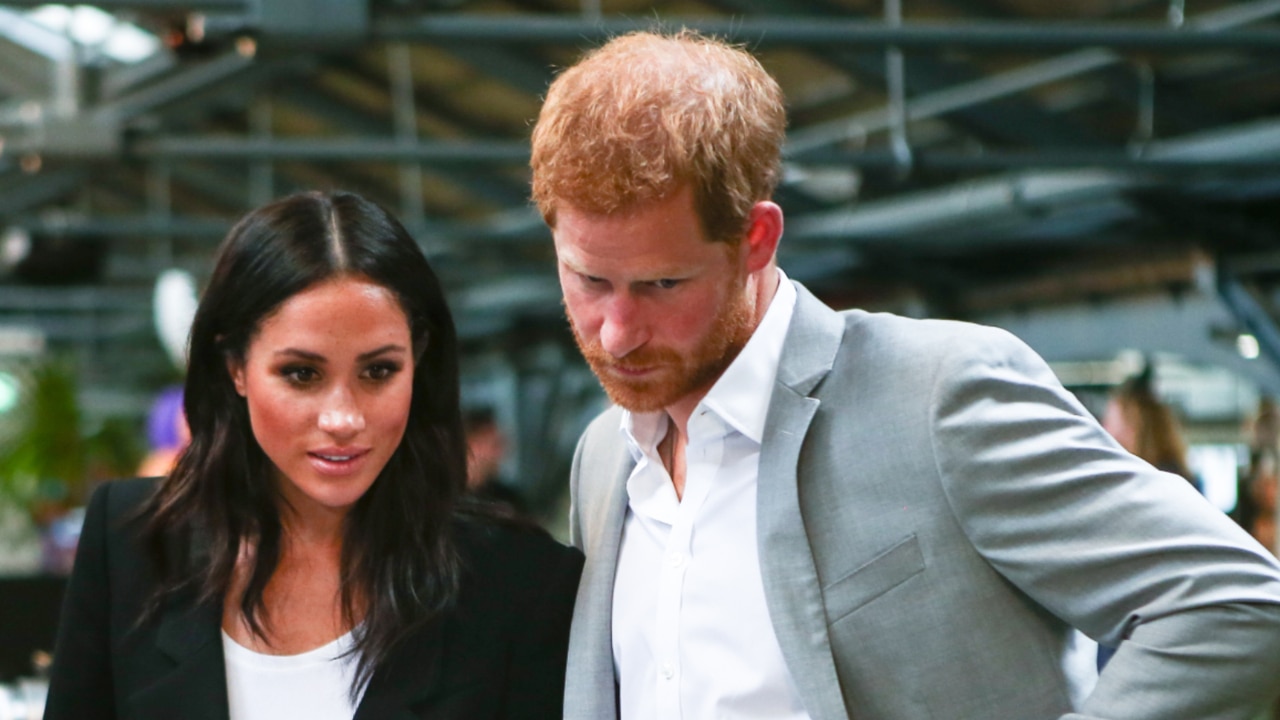
Prince Harry has candidly said he and Meghan are “not making friends” in an online interview with a trauma therapist who extraordinarily during the session “diagnosed” the Duke with ADD, leaving the royal bemused.
The Duke’s fireside Zoom chat with Dr Gabor Maté is the latest interview the Sussexes have done delving into their relationship and the royal family.
It comes as relations between Buckingham Palace and the Sussexes are at rock bottom after the couple were turfed out of their UK home of Frogmore Cottage and there is uncertainty as to whether Harry and Meghan will attend the King’s coronation in May.
Residents of the US, Canada and the UK could tune into the therapy session for $60 each which included a copy of the prince’s memoir Spare.
It had been billed as an “intimate conversation as (the pair) discuss living with loss and the importance of personal healing”.
During the talk Harry bragged about the “45,000 Amazon reviews,” of his book which he said were “humbling” to read.
While Meghan cropped up, as did King Charles and the late Queen, Harry notably didn’t mention Prince William and Kate or Queen Consort Camilla at all despite writing reams about them in his book.
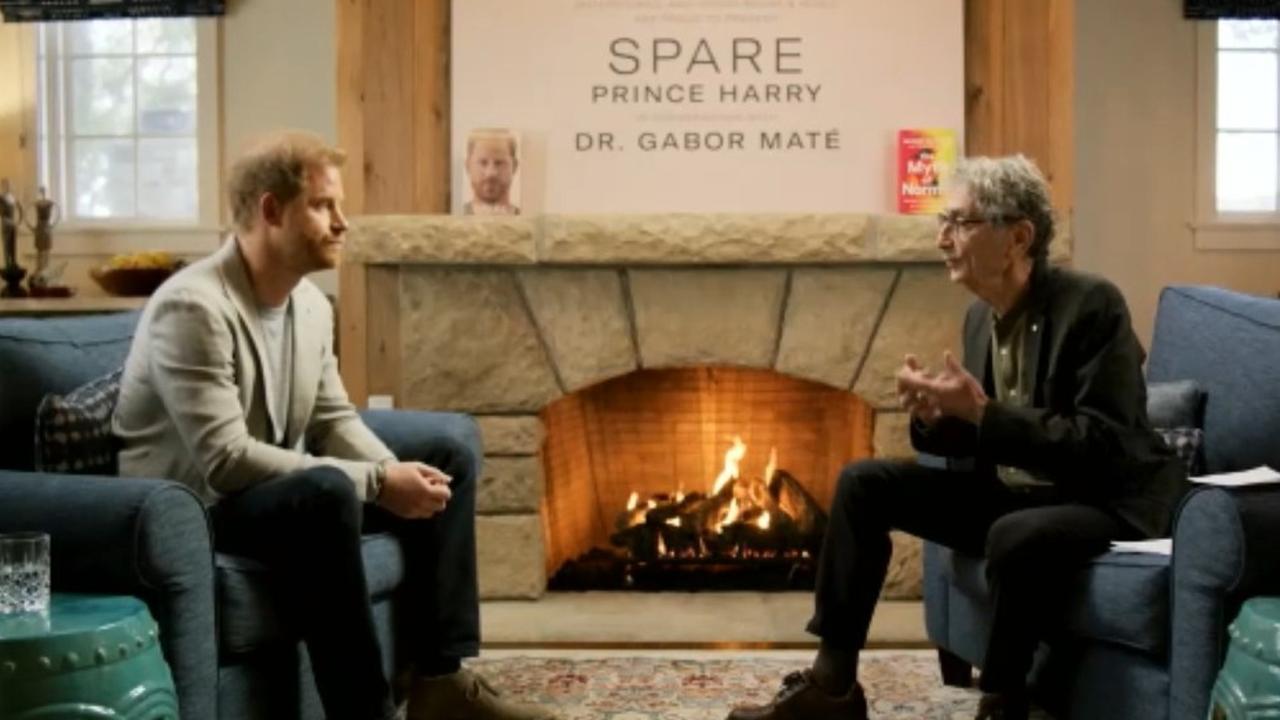
During the session, Prince Harry said he “felt slightly different” to the rest of the royal family, that he didn’t consider himself a “victim,” and that he “smothers” his children Archie and Lilibet with love because of a lack of affection he said he received.
The veteran of Afghanistan touched on more controversial grounds saying some people in the British Army “didn’t agree” with the military conflict.
Dr Maté, author of The Myth of Normal: Trauma, Illness, and Healing in a Toxic Culture, pinned his colours to team Harry immediately by suggesting there were only two groups of people. Those who hadn’t read his memoir Spare who were “resentful” towards him and those that did who were “grateful” to him for sharing his story.
“Since the age of 12, apart from being in a state of shock, I was in fight or flight,” the prince told Dr Maté in the session which was filmed in the couple’s Montecito house.
Harry was 12 when Diana died.
“I certainly have felt throughout my life, from my younger years, that I always felt slightly different to the rest of my family. I felt strange being in this container. And I know that my mum felt the same.”
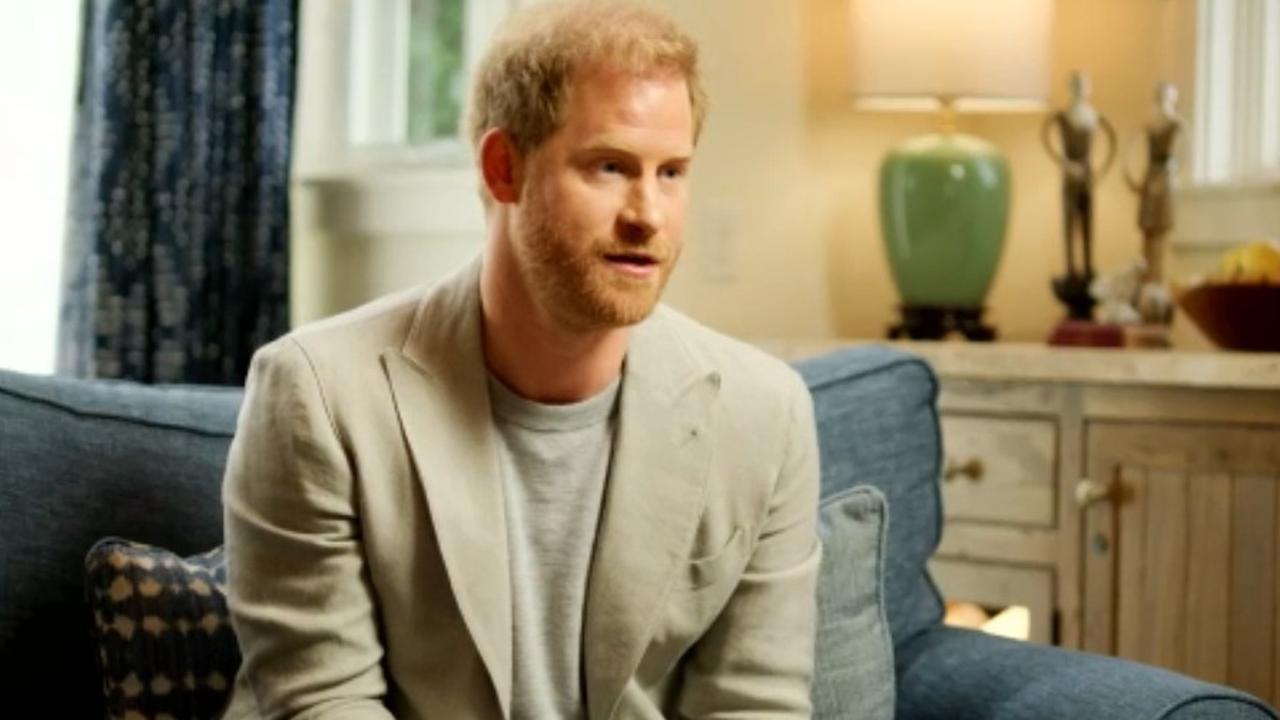
Harry ‘diagnosed’ with ADD
Dr Maté told Harry that after reading Spare he came up with “as a clinician … several diagnoses” for him.
“Whether you like it or not, I have diagnosed you with ADD. You can agree or disagree.
“I don’t see it as a disease. I see it as a normal response to abnormal stress.”
Attention-deficit/hyperactivity disorder (ADD) is a childhood condition that can last into adulthood which manifests as a difficultly in paying attention and impulsive behaviours.
Prince Harry, seemingly stunned, initially just said “OK”.
He then asked “should I accept that or should I look into it?”
“You can do what you want with it,” said the therapist.
Harry insisted multiple times that he was not a “victim”.
“I definitely don’t see myself as a victim.
“I get a huge amount of healing by helping others. I don’t know if that was my purpose but it was the way I was brought up.
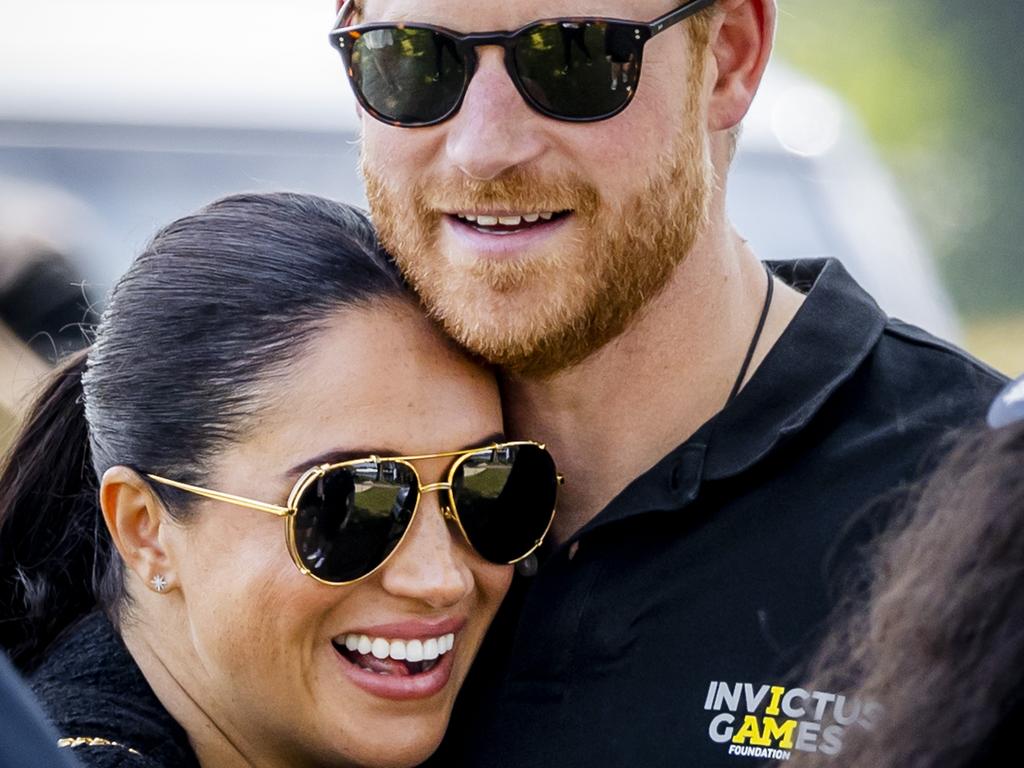
Spare’s ‘45,000 Amazon reviews’
At one point Harry highlighted “humbly” all the reviews he had from readers on website Amazon about his “life saving” tome, Spare.
“I want this (book) to be an act of service.
“I know how important it is sharing stories, how you can save a life and you can improve lives because you’re almost giving permission for people to talk about their own stuff.”
He said the “gratitude and love and support” his book had received was “extraordinary”.
“My editor strongly suggested that I look at the Amazon reviews, of which there are now over 45,000.
“And some people have written essays and to hear people’s own take on my story has been humbling. And it makes it all worth it.”
‘Not making friends’
Dr Maté asked Harry about an excerpt from Spare about how he found out about his mother’s death. Harry wrote his father touched his knee and then left his room to deal with the heartbreak.
The Hungarian-Canadian author added how Charles himself had a distant relationship from his mother, the Queen.
“What is the lack of holding and touching and cuddling in this family and it’s obviously multi-generational?” he asked.
“It puts me in a position now as a father to make sure that I smother (my children) with love and affection,” Harry replied.
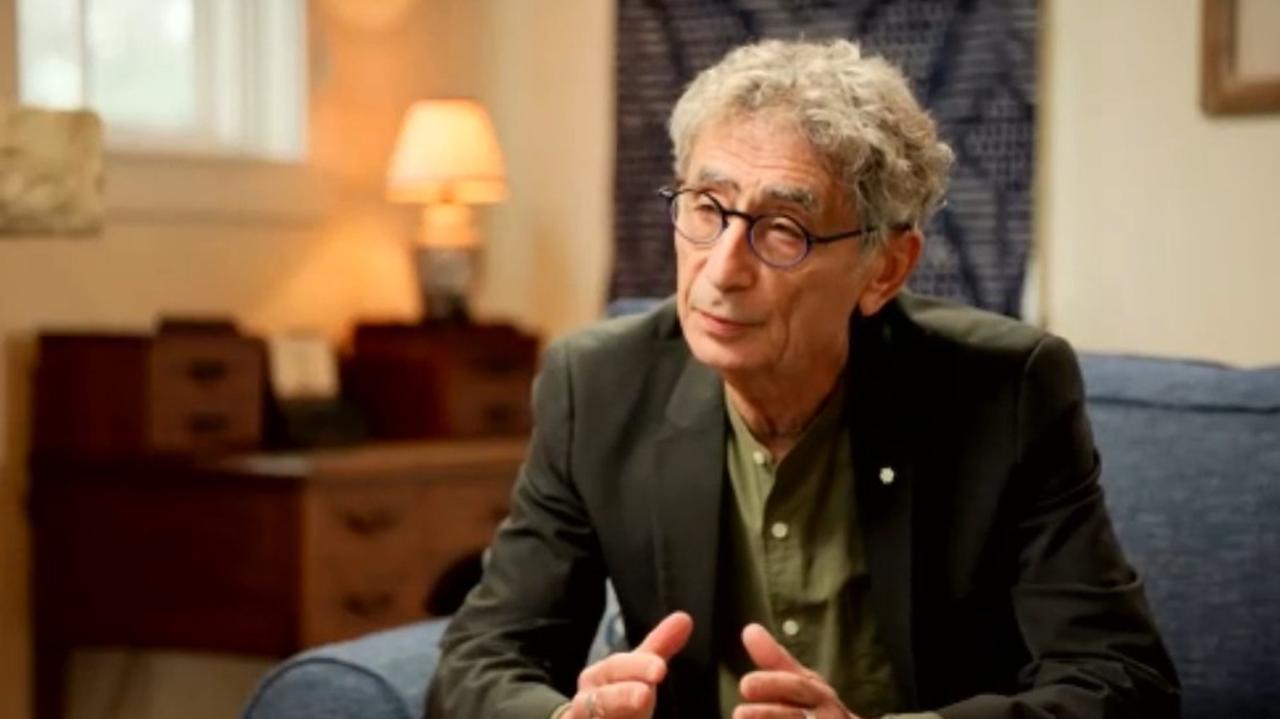
“As a father I have a huge responsibility to ensure that I don’t pass on any traumas that I’ve had as a kid or as a man growing up”.
But he said trying to rid himself of his “traumas” could be alienating.
“Me and my wife do the best we can as parents, learning from our own pasts and being able to grow together to provide for our kids and to be able to break that cycle.
“And it’s not easy, and you certainly don’t make friends in the process in the short term.”
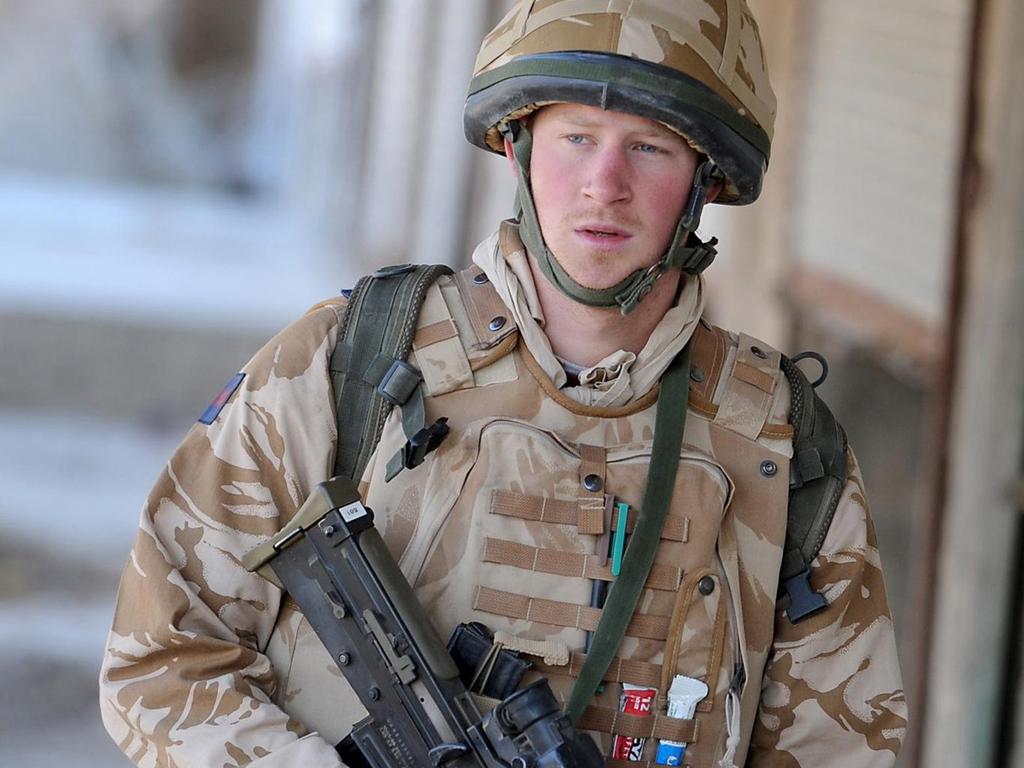
Many ‘didn't agree or disagree’ with war
Dr Maté asked about Harry’s military service in Afghanistan but before the prince could answer he told him that he could not “pretend” that the “West’s invasion” of the nation was “all okay”.
Harry said some in the military disagreed with the conflict.
“One of the reasons why suddenly so many people in the UK were not supportive of our troops was because they assumed that everybody that was serving was for the war.
“But, no, once you sign up you do what you’re told to do, so there was a lot of us that didn’t necessarily agree or disagree, but you were doing what you were sent to do.”
Harry also said he had taken a “crash course” in racism.
“To experience what I and my wife have experienced was pretty shocking.
“I think what people don’t understand is the pain that it causes to an individual is huge but the pain that it causes to society is also immense.
“I’ve made my own mistakes in the past which I own and in a way I’m grateful for those experiences because I had to take accountability for it. I didn’t know that I had this unconscious bias.”





